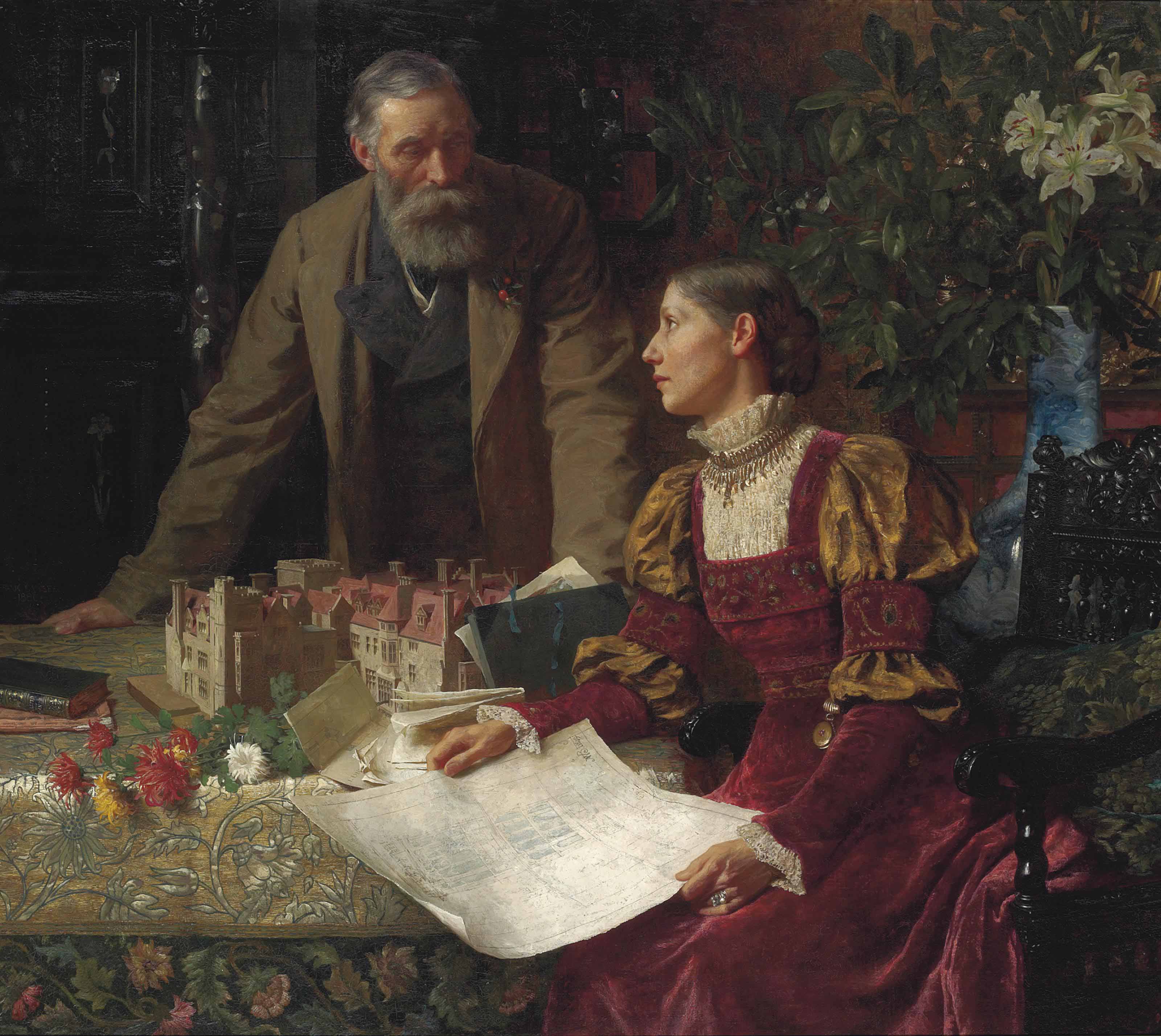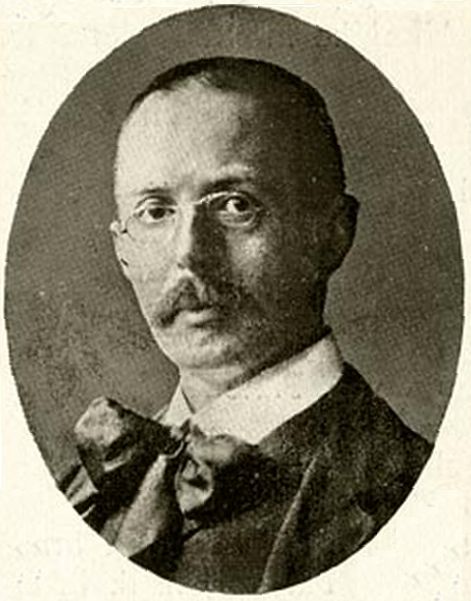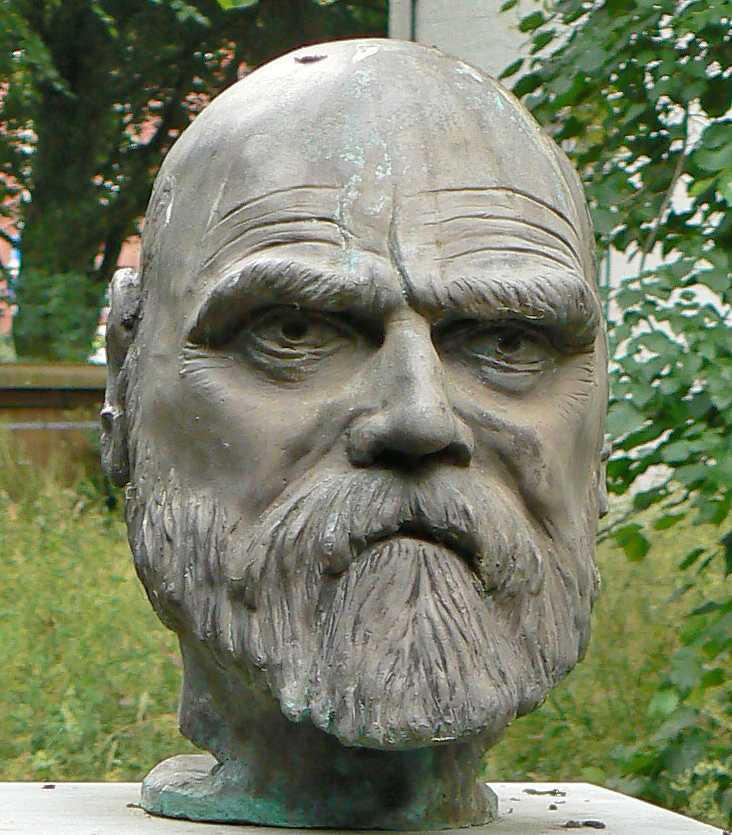|
Significs
Significs ( nl, significa) is a linguistic and philosophical term introduced by Victoria, Lady Welby in the 1890s. It was later adopted by the Dutch Significs Group (or movement) of thinkers around Frederik van Eeden, which included L. E. J. Brouwer, founder of intuitionistic logic, and further developed by Gerrit Mannoury and others. Overview Significs, intended to be a theory of signs, was developed by Lady Welby in quite close connection with the work of Charles Sanders Peirce, her correspondent. There is no scholarly consensus on its precise placing as an influence on later developments: on the ground now occupied by semantics, semiotics and semiology, it is closer to semiology than to the two others. While significs is a possible precursor of later semiology, it is still a matter of debate what the extent of that connection amounts to. At a personal level Lady Welby did have some effect, particularly on C. K. Ogden. A mediating figure, she has not until quite recently been g ... [...More Info...] [...Related Items...] OR: [Wikipedia] [Google] [Baidu] |
Victoria, Lady Welby
Victoria, Lady Welby (27 April 1837 – 29 March 1912), more correctly Lady Welby-Gregory, was a self-educated British philosopher of language, musician and watercolourist. Life Welby was born to the Hon. Charles Stuart-Wortley-Mackenzie and Lady Emmeline Stuart-Wortley, and christened Victoria Alexandrina Maria Louisa Stuart-Wortley. Following the death of her father in 1844, she travelled widely with her mother, and recorded her travel experiences in her diary. When her mother died on their travels in Syria in 1855, she returned to England to stay with her grandfather, John Manners, the 5th Duke of Rutland, at Belvoir Castle. In 1858 she moved to Frogmore to live with a friend of her mother's – the Duchess of Kent, Princess Victoria of Saxe-Coburg-Saalfeld, Queen Victoria's mother. On the death of the duchess she was appointed a maid of honour to her godmother, the Queen herself. In 1863 she married Sir William Earle Welby-Gregory, 4th baronet (1829–1898), who was ... [...More Info...] [...Related Items...] OR: [Wikipedia] [Google] [Baidu] |
Gerrit Mannoury
Gerrit Mannoury (17 May 1867 – 30 January 1956) was a Dutch philosopher and mathematician, professor at the University of Amsterdam and communist, known as the central figure in the signific circle, a Dutch counterpart of the Vienna circle.Jan Siegenbeek van Heukelom & Gerard Alberts (2000)''Correspondentie David van Dantzig-Gerrit Mannoury : historische notitie SEN'' CWI The Netherlands. Biography Gerrit Mannoury was born on 17 May 1867 in Wormerveer, and died on 30 January 1956 in Amsterdam. On 8 August 1907 he married Elizabeth Maria Berkelbach van der Sprenkel, with whom he had three daughters and a son, Jan Mannoury. His father Gerrit Mannoury, a sea-captain, had died in China when he was three years old.Ger Harmsen, Gerrit Voerman (1998)"Gerrit Mannoury" In: ''Biografisch Woordenboek van het Socialisme''. p. 137–141. He attended the Hogere Burgerschool (HBS) in Amsterdam, where he graduated in 1885. The same year he received a Teacher's Degree in Accounting and ... [...More Info...] [...Related Items...] OR: [Wikipedia] [Google] [Baidu] |
Jacob Israël De Haan
Jacob Israël de Haan (31 December 1881 – 30 June 1924) was a Dutch Jewish literary writer, lawyer and journalist who immigrated to Palestine in 1919 and was assassinated in Jerusalem in 1924 by the Zionist paramilitary organization Haganah for his anti-Zionist political activities. Early life De Haan was born in Smilde, a village in the northern province of Drenthe, and grew up in Zaandam. He was said to be one of eighteen children and received a traditional Jewish education. In 1904, while living in Amsterdam, he wrote the novel '' Pijpelijntjes'' ("Lines from De Pijp"), which pretends to be a thinly veiled version of his own gay life with Arnold Aletrino in Amsterdam's " Pijp" working-class district. The homo-eroticism of the book, shocking to readers in the early 20th century, led to his dismissal from his teaching job and social-democratic political circles. Aletrino and Johanna van Maarseveen, de Haan's fiancée, bought almost the entire print run of the book, to keep a ... [...More Info...] [...Related Items...] OR: [Wikipedia] [Google] [Baidu] |
David Van Dantzig
David van Dantzig (September 23, 1900 – July 22, 1959) was a Dutch mathematician, well known for the construction in topology of the dyadic solenoid. He was a member of the Significs Group. Biography Born to a Jewish family in Amsterdam in 1900, Van Dantzig started to study Chemistry at the University of Amsterdam in 1917, where Gerrit Mannoury lectured. He received his PhD at the University of Groningen in 1931 with a thesis entitled "" under supervision of Bartel Leendert van der Waerden.David van Dantzig at Mathematics Genealogy Project. He was appointed professor at the Delft University of Technology in 1938, and at the [...More Info...] [...Related Items...] OR: [Wikipedia] [Google] [Baidu] |
Emmeline Cust
Emmeline 'Nina' Cust (1867–1955) was an English writer, editor, translator and sculptor. She was a member of The Souls, an upper class circle that challenged the conventions and attitudes of their class in the late nineteenth and early twentieth centuries. Personal life Cust was born at Denton Hall to Victoria, Lady Welby, a philosophical writer and Sir William Earle Welby-Gregory, a politician and landowner. Her maternal grandmother, Lady Emmeline Stuart-Wortley was a renowned Victorian poet and travel writer. In 1893, Cust married another member of The Souls, Henry John Cockayne-Cust. She supported her husband in much of his work, including correspondence for the Central Committee for National Patriotic Organisations. Cust was devoted to her husband, despite a reputedly unhappy marriage that lasted until his death in 1917. Cust was a direct neighbour of sculptor Jacob Epstein when they both lived at Hyde Park Gate in London. Writing and translation Cust wrote a bi ... [...More Info...] [...Related Items...] OR: [Wikipedia] [Google] [Baidu] |
Ferdinand Tönnies
Ferdinand Tönnies (; 26 July 1855 – 9 April 1936) was a German sociologist, economist, and philosopher. He was a significant contributor to sociological theory and field studies, best known for distinguishing between two types of social groups, Gemeinschaft and Gesellschaft (''community and society''). He co-founded the German Society for Sociology together with Max Weber and Georg Simmel and many other founders. He was president of the society from 1909 to 1933, after which he was ousted for having criticized the Nazis. Tönnies was regarded as the first proper German sociologist and published over 900 works, contributing to many areas of sociology and philosophy. Tönnies, Max Weber, and Georg Simmel are considered the founding fathers of classical German sociology. Though there has been a resurgence of interest in Weber and Simmel, Tönnies has not drawn as much attention. Biography Early life He was born on 26 July 1855 on the Haubuarg "De Reap," Oldenswort on ... [...More Info...] [...Related Items...] OR: [Wikipedia] [Google] [Baidu] |
Christiaan Pieter Raven
Christiaan is a Dutch, Flemish and Afrikaans male given name. An archaic spelling of the name was Christiaen with "ae" to indicate the long sound "a". People with the name include: * Christiaan van Adrichem (1533–1585), Dutch Catholic priest and theological writer *Christiaan Andriessen (1775–1846), Dutch painter *Christiaan Bailey (born 1981), American surfer *Christiaan Bakkes (born 1965), South African writer *Christiaan Bangeman Huygens (1772–1857), Dutch diplomat and civil servant *Christiaan Barnard (1922–2001), South African cardiac surgeon known for his heart transplants *Christiaan Basson (born 1982), South African golfer *Christiaan Berger (1911–1965), Dutch sprinter *Christiaan Beyers (1869–1914), South African Boer general during the Second Boer War *Christiaan Bezuidenhout (born 1994), South African golfer *Christiaan Frederick Beyers Naudé (1915–2004), South African cleric, theologian, and anti-apartheid activist *Christiaen Jansz van Bieselingen (1558 ... [...More Info...] [...Related Items...] OR: [Wikipedia] [Google] [Baidu] |
Hermann Jacques Jordan
Hermann or Herrmann may refer to: * Hermann (name), list of people with this name * Arminius, chieftain of the Germanic Cherusci tribe in the 1st century, known as Hermann in the German language * Éditions Hermann, French publisher * Hermann, Missouri, a town on the Missouri River in the United States ** Hermann AVA, Missouri wine region * The German SC1000 bomb of World War II was nicknamed the "Hermann" by the British, in reference to Hermann Göring * Herrmann Hall, the former Hotel Del Monte, at the Naval Postgraduate School, Monterey, California * Memorial Hermann Healthcare System, a large health system in Southeast Texas * The Herrmann Brain Dominance Instrument (HBDI), a system to measure and describe thinking preferences in people * Hermann station (other), stations of the name * Hermann (crater), a small lunar impact crater in the western Oceanus Procellarum * Hermann Huppen, a Belgian comic book artist * Hermann 19, an American sailboat design built by Ted Herma ... [...More Info...] [...Related Items...] OR: [Wikipedia] [Google] [Baidu] |
Stanford Encyclopedia Of Philosophy
The ''Stanford Encyclopedia of Philosophy'' (''SEP'') combines an online encyclopedia of philosophy with peer-reviewed publication of original papers in philosophy, freely accessible to Internet users. It is maintained by Stanford University. Each entry is written and maintained by an expert in the field, including professors from many academic institutions worldwide. Authors contributing to the encyclopedia give Stanford University the permission to publish the articles, but retain the copyright to those articles. Approach and history As of August 5th, 2022, the ''SEP'' has 1,774 published entries. Apart from its online status, the encyclopedia uses the traditional academic approach of most encyclopedias and academic journals to achieve quality by means of specialist authors selected by an editor or an editorial committee that is competent (although not necessarily considered specialists) in the field covered by the encyclopedia and peer review. The encyclopedia was created in ... [...More Info...] [...Related Items...] OR: [Wikipedia] [Google] [Baidu] |
Jacques Van Ginneken
Ancient and noble French family names, Jacques, Jacq, or James are believed to originate from the Middle Ages in the historic northwest Brittany region in France, and have since spread around the world over the centuries. To date, there are over one hundred identified noble families related to the surname by the Nobility & Gentry of Great Britain & Ireland. Origins The origin of this surname ultimately originates from the Latin, Jacobus which belongs to an unknown progenitor. Jacobus comes from the Hebrew name, Yaakov, which translates as "one who follows" or "to follow after". Ancient history A French knight returning from the Crusades in the Holy Lands probably adopted the surname from "Saint Jacques" (or "James the Greater"). James the Greater was one of Jesus' Twelve Apostles, and is believed to be the first martyred apostle. Being endowed with this surname was an honor at the time and it is likely that the Church allowed it because of acts during the Crusades. Indeed ... [...More Info...] [...Related Items...] OR: [Wikipedia] [Google] [Baidu] |
Evert W
Evert is a Dutch and Swedish short form of the Germanic masculine name "Everhard" (alternative Eberhard). at the database of given names in the Netherlands. It is also used as surname. Notable people with the name include: Given name * (1602–1657), Dutch still life painter * (1772–1809), Norwegian naval officer * |
Henri Borel
Henri is an Estonian, Finnish, French, German and Luxembourgish form of the masculine given name Henry. People with this given name ; French noblemen :'' See the ' List of rulers named Henry' for Kings of France named Henri.'' * Henri I de Montmorency (1534–1614), Marshal and Constable of France * Henri I, Duke of Nemours (1572–1632), the son of Jacques of Savoy and Anna d'Este * Henri II, Duke of Nemours (1625–1659), the seventh Duc de Nemours * Henri, Count of Harcourt (1601–1666), French nobleman * Henri, Dauphin of Viennois (1296–1349), bishop of Metz * Henri de Gondi (other) * Henri de La Tour d'Auvergne, Duke of Bouillon (1555–1623), member of the powerful House of La Tour d'Auvergne * Henri Emmanuel Boileau, baron de Castelnau (1857–1923), French mountain climber * Henri, Grand Duke of Luxembourg (born 1955), the head of state of Luxembourg * Henri de Massue, Earl of Galway, French Huguenot soldier and diplomat, one of the principal commanders of Bat ... [...More Info...] [...Related Items...] OR: [Wikipedia] [Google] [Baidu] |




